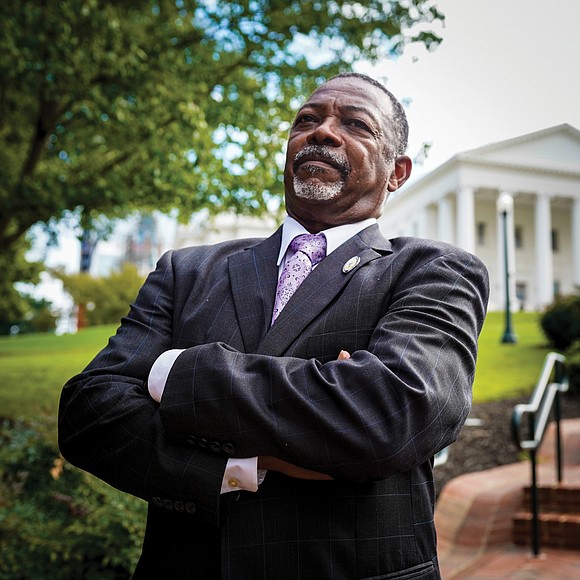NAACP declines to challenge redistricting; encouraged by meeting with new GOP administration
Jeremy M. Lazarus | 1/13/2022, 6 p.m.
The new boundaries for Virginia’s election districts for Congress and the General Assembly will not face any immediate legal challenge from the Virginia State Conference NAACP.
Robert N. Barnette Jr., president of the state’s oldest civil rights groups, said the NAACP’s legal team could not find sufficient grounds to appeal the new maps that the Virginia Supreme Court approved in late December.
Essentially, he said the NAACP is disappointed, but will accept the redrawn districts that have been put in place.
The two redistricting experts the court hired to draw the maps based on 2020 Census data, Democrat Dr. Bernard Grofman and Republican Sean Trende, brushed off concerns raised by the NAACP’s lawyers about the data that was used and the boundary lines that were created.
The overall outlines of the congressional map appear to create five Republican-leaning districts, five Democratic-leaning districts and one toss-up district.
The approved General Assembly maps also put at risk the re-election prospects of six members of the Virginia Legislative Black Caucus, including its chairman, Henrico Delegate Lamont Bagby, who is now in the same district as a white incumbent Democrat.
The approved maps show 13 incumbent Democrats in the House were drawn into six House of Delegate districts, while 18 incumbent Republicans were drawn into nine House districts. Five more Republican and Democratic incumbents were drawn into two House districts.
Mr. Barnette said the legal team, including attorneys from the national NAACP, the Lawyers’ Committee for Civil Rights Under Law and the Hogan Lovells law firm, advised the state NAACP to wait to see the impact of the boundary changes. He said election results based on the new lines would better determine whether Black voting strength was undermined.
The only appeal of the Virginia Supreme Court’s redistricting order would be to the U.S. Supreme Court.
The state Supreme Court got the job of drawing new district boundaries for the state’s 11 seats in the House of Representatives, the 40 seats in the state Senate and the 100 seats in the state House of Delegates after a new bipartisan redistricting commission failed in October.
Separately, the state NAACP’s leadership reported being encouraged about the ability to achieve “a positive working relationship” with the incoming administration of GOP Gov.-elect Glenn A. Youngkin.
The report followed an hourlong meeting Jan. 5 between Mr. Barnette, state NAACP Executive Director Da’Quan M. Love, Gov.-elect Youngkin, Lt. Gov.-elect Winsome Sears and Attorney General-elect Jason Miyares. The Republicans will be sworn into office this weekend.
Mr. Barnette said he and Mr. Love “are encouraged by the incoming governor’s willingness to facilitate productive talks with the Virginia NAACP and receive his commitment to be accessible, responsible and transparent.
“We look forward to working with the incoming administration on areas of shared interest, including increasing funding for historically black colleges and universities and expanding educational opportunities for Virginia’s children,” Mr. Barnette said.
He did not mention other issues of concern to the NAACP, such as voting rights, gun control and criminal justice reform, on which there could be substantial differences.
However, the meeting continues a tradition of the state NAACP meeting regularly with top state officials to discuss matters of concern to Black Virginians and other people of color.







